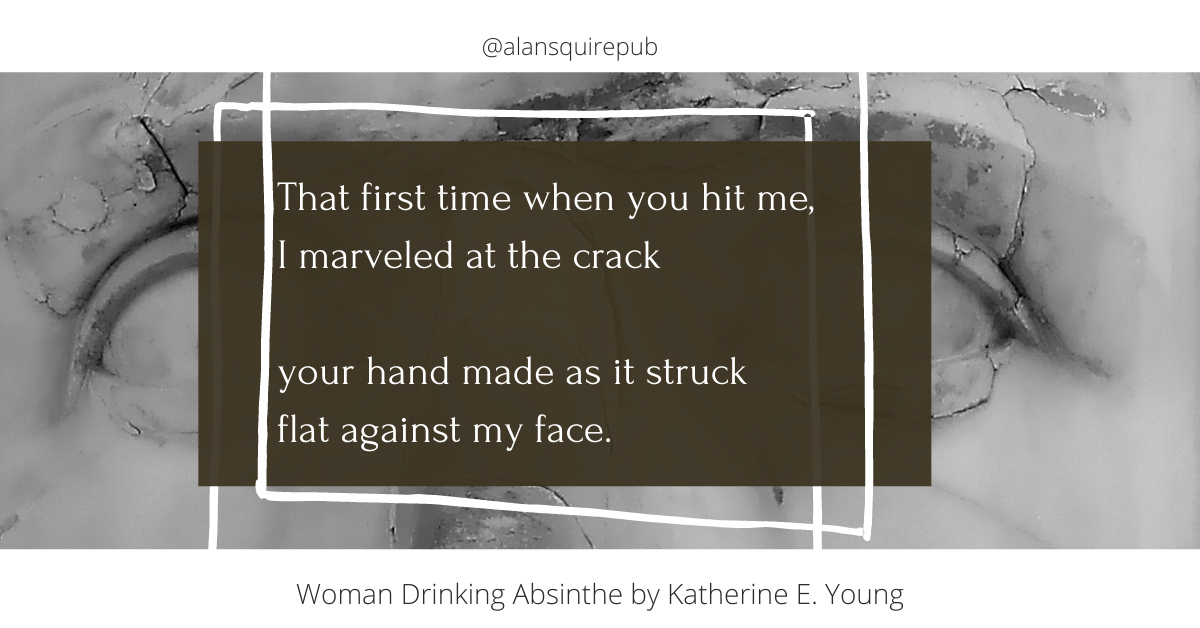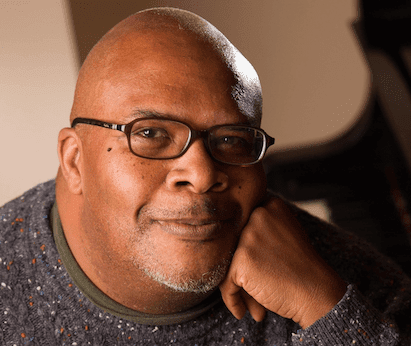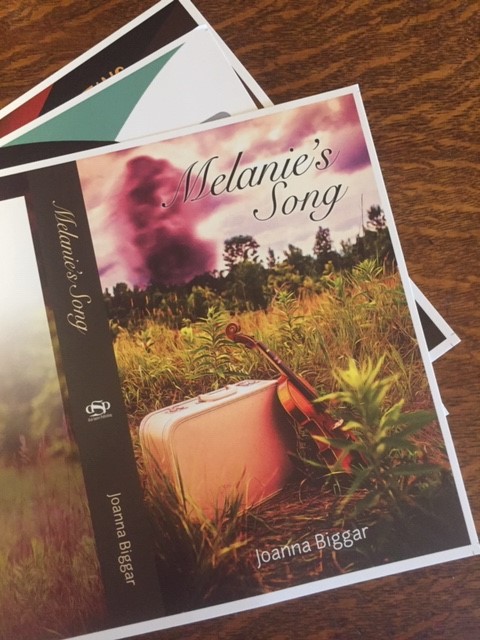WOMAN DRINKING ABSINTHE Analyzed by Billy Mills
Former Guardian Literary Journalist, Billy Mills, analyzes the conception of love in Katherine E. Young's new collection.

"Young’s core subject is love, but there’s nothing redemptive or particularly healing about its manifestations," writes Billy Mills in his analysis of Young's Woman Drinking Absinthe. Elsewhere he compares the different manifestations of this theme to coeval poets Christopher Jane Corkery and James Roome.
Mills analysis is fitting for Young's work which comes from a deeply literary place and is steeped in evocative allusion. Mills places WDA alongside the likes of Pound and Eliot in his thinking. Like these poets, Young uses unorthodox and historically informed forms and diction in her poetry.
An excerpt of Mills' analysis follows:
"The fourth (of five) sections of Katherine E. Young’s Woman Drinking Absinthe is a single sequence, ‘Place of Peace’ that takes off from a visit to the Civil War memorial at Shiloh National Military Park. The fourth section of the sequence opens with he line ‘Who doesn’t desire to be mesmerized by love?’ and ends ‘once more I fear the shadow of his hand.’ These lines could be said to serve as the twin poles of the entire collection.
For Young’s core subject is love, but there’s nothing redemptive or particularly healing about its manifestations."
The poems in Katherine E. Young’s Woman Drinking Absinthe concern themselves with transgressions. Lust, betrayal, guilt, redemption: Young employs fairy tales, opera, Impressionism, Japonisme, Euclidean geometry, Greek tragedy, wine, figs, and a little black magic to weave a tapestry that’s as old as the hills and as fresh as today’s headlines.
University of DC Jazz Forum: A Conversation with Reuben Jackson
In this video from the UDC Jazz Forum, jazz scholar, Reuben Jackson, sits down with historian, Rusty Hassan, to discuss his life and career.
Inside the Industry: The Wonderful World of Galleys
Joanna Biggar’s new book has just gone to galley, but what exactly does that mean?
Remembering W.S. Merwin: Grace Cavalieri’s Two Interviews with the Literary Giant
In 2000, the bicentennial of the Library of Congress, four Poets Laureate were appointed just for the occasion. The four dignitaries were W.S. Merwin, Robert Pinsky, Rita Dove, and Louise Gluck. I was to record one after the other for 4 hours. That first meeting with Merwin was unforgettable, as he arrived for an hour interview without so much as one poem in his hands. Fortunately, I had brought ten books for his signature and we puzzled our way through. He was delighted to recognize some of his first slim published volumes that were out of print, as well as a few collector’s items.

